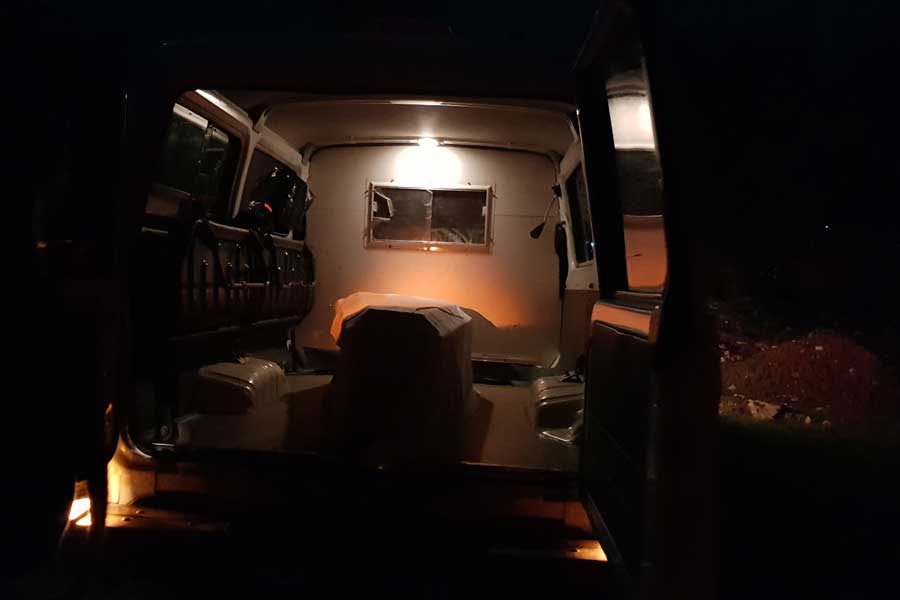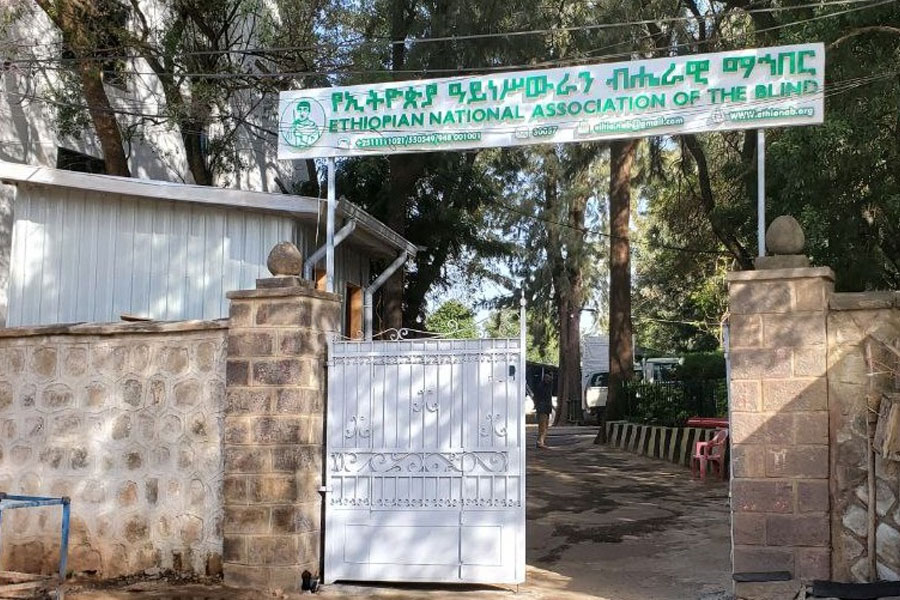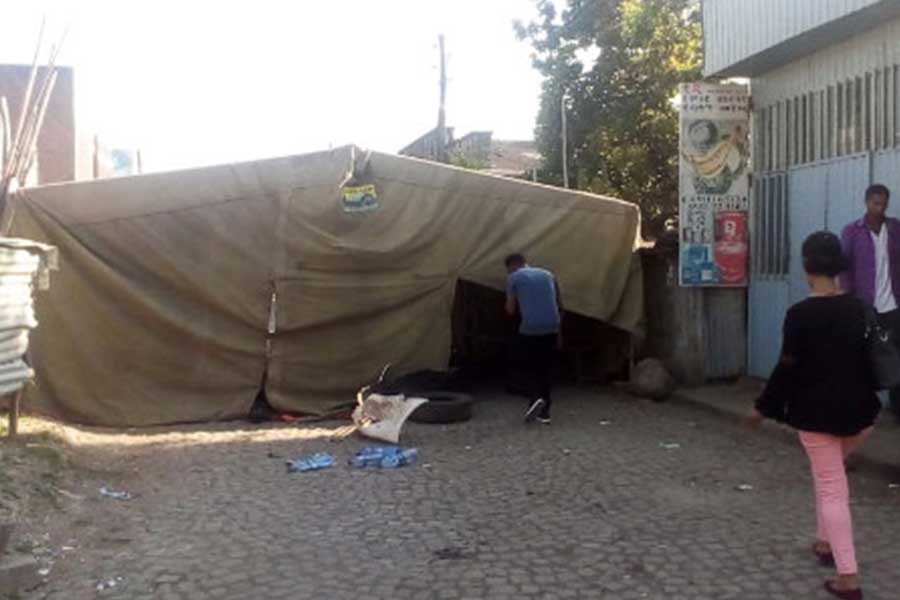
Sunday with Eden | Aug 10,2019
By Susanna Moorehead
One hundred years ago today, at the 11th hour of the 11th day of the 11th month, the guns in Europe fell silent. That most dreadful of wars, the First World War, came to an end. More than nine million soldiers died, a third of them as a result of diseases.
Around 750,000 of them were from my country. It was a tragic loss of human life, one that is still commemorated every year on this day in the United Kingdom. We wear red poppy flowers to remember the battlefields of Northern France and Belgium. We fall silent at 11 o’clock to remember those who lost their lives. It is a poignant occasion and one that we also commemorate here in Addis Abeba at the Gullele Cemetery.
In its day, World War I was described as “the war to end all wars.”
The problem is that it was not.
In the two decades that followed, conflict persisted across the globe, from a civil war in Spain to the invasion of Eastern China and, of course, armed occupation here in Ethiopia. And by 1939, the world was plunged into another global war that began in Europe.
With the advent of new weapons, in World War II between 50 and 70 million people died, many of them civilians. The guns had most definitely not been silenced. We remember World War II on this day as well. But we also remember all the work since it ended in 1945 to reduce the potential for conflict around the world - from the economic rebuilding of Europe, to the process of decolonisation, to the advent of the Universal Declaration of Human Rights, and the creation of the United Nations.
Thankfully, since that time there has not been another global war on the same scale. But smaller conflicts have been commonplace around the world, especially in recent decades in Africa. The numbers killed may not have been as great, but every life lost infighting is a tragedy for humanity.
Prime Minister Abiy Ahmed (PhD) has recognised this with his call for peace and an end to Ethiopia’s internal conflicts. He and regional leaders have acted with remarkable effort to end the ‘no-peace-no-war’ stalemate with Eritrea. African leaders as a group have recognised this with their bold endorsement of the African Union’s aim to Silence the Guns by 2020.
Now we all have to deliver. The United Kingdom stands fully behind these aims, and we are playing our part to support them. Here in the Horn of Africa, we have worked closely with Intergovernmental Authority on Development (IGAD) to support the South Sudan peace process and are calling on all parties to make the latest agreement stick and silence the guns for good.
In the African Union, we have supported work on conflict mediation, conflict prevention and crisis management. Thousands of miles away next week, we will lead a discussion of Eritrea in the United Nations Security Council to welcome peace with Ethiopia and push for progress on outstanding Djibouti-Eritrea disputes.
But our support is not limited to the conference rooms of leaders. Through the Peace Support Training Centre that the UK helped build in Addis Abeba, we help prepare 250 Ethiopian soldiers every year to act as peacekeepers for the UN and the African Union, helping to stabilise fragile places and protect civilians.
We are teaming up on the ground too - our forces are serving alongside each other as part of the UN Mission in South Sudan. And where there are groups such as Al-Shabaab who sadly show no signs of wanting to silence their weapons, the UK helps to fund and train the regional troops who seek to prevent further bloodshed. Last month we trained Ethiopian soldiers on how to spot and defuse small bombs and improvised explosive devices. That alone will save lives.
And we will do more. Part of remembering is also to act. As we remember those who have made the ultimate sacrifice, whether a century ago in Europe or this year in Somalia, we also commit ourselves to ensuring that their sacrifices were not in vain. It may not happen overnight, but we will make a better world for their descendants. Working together, we will silence the guns.
PUBLISHED ON
[ VOL
19 , NO
968]


Sunday with Eden | Aug 10,2019

Agenda | Jun 14,2020

Sunday with Eden | Aug 26,2023

View From Arada | Apr 17,2020

Commentaries | Dec 19,2021

Editorial | Sep 02,2023

Agenda | Jun 15,2025

Radar | Jan 05,2020

View From Arada | Oct 03,2020

Letter To Editor | Mar 16,2019

Photo Gallery | 172669 Views | May 06,2019

Photo Gallery | 162896 Views | Apr 26,2019

Photo Gallery | 152726 Views | Oct 06,2021

My Opinion | 136386 Views | Aug 14,2021





Dec 22 , 2024 . By TIZITA SHEWAFERAW
Charged with transforming colossal state-owned enterprises into modern and competitiv...

Aug 18 , 2024 . By AKSAH ITALO
Although predictable Yonas Zerihun's job in the ride-hailing service is not immune to...

Jul 28 , 2024 . By TIZITA SHEWAFERAW
Unhabitual, perhaps too many, Samuel Gebreyohannes, 38, used to occasionally enjoy a couple of beers at breakfast. However, he recently swit...

Jul 13 , 2024 . By AKSAH ITALO
Investors who rely on tractors, trucks, and field vehicles for commuting, transporting commodities, and f...

Oct 4 , 2025
Eyob Tekalegn (PhD) had been in the Governor's chair for only weeks when, on Septembe...

Sep 27 , 2025
Four years into an experiment with “shock therapy” in education, the national moo...

Sep 20 , 2025
Getachew Reda's return to the national stage was always going to stir attention. Once...

Sep 13 , 2025
At its launch in Nairobi two years ago, the Africa Climate Summit was billed as the f...

Oct 5 , 2025 . By NAHOM AYELE
In Meqelle, a name long associated with industrial grit and regional pride is undergo...

Oct 5 , 2025 . By BEZAWIT HULUAGER
The federal government is set to roll out a new "motor vehicle circulation tax" in th...

Oct 5 , 2025 . By NAHOM AYELE
The Bank of Abyssinia is wrestling with the loss of a prime plot of land once leased...

Oct 5 , 2025 . By BEZAWIT HULUAGER
The Customs Commission has introduced new tariffs on a wide range of imported goods i...